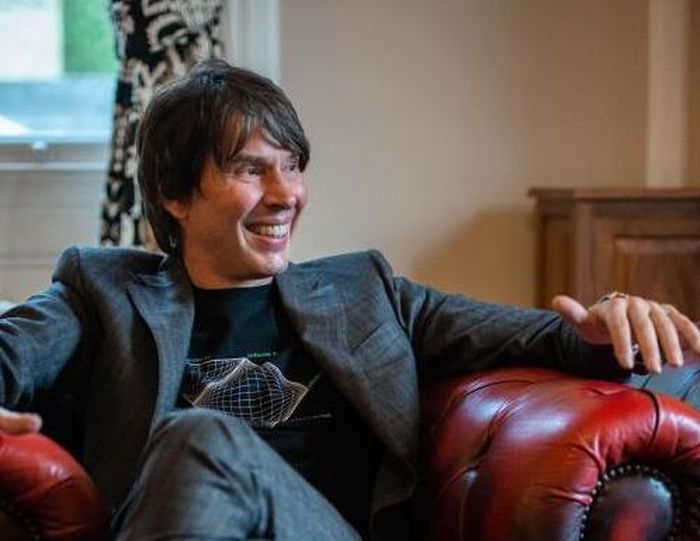‘There’s just so much you’re not taught in school’ – Author and teacher Jeffrey Boakye on the British education system
Jeffrey Boakye on ‘Britishness’, the ‘pantomime’ of Parliament and what he’s got in the pipeline

“My story is one of Ghanian heritage”, Boakye begins, as I ask him about his upbringing in the South London district of Brixton. Jeffrey’s childhood seems a far cry from his life now in East Yorkshire with his wife Sophie, who sits beside him after their long car journey.
He tells me that he didn’t “experience so much racism growing up” in 1980s and 90s Brixton because the area was largely dominated by the Caribbean community and West African families. It was here when Boakye began to wonder why many influences from primary and secondary school came from “the traditional cannon.” Although Boakye enjoyed exploring writers such as Roald Dahl and Dick King Smith, the realisation that there was not much “black literature” (particularly aimed at younger children), left him feeling something of a cultural void. “Black music, food [and] clothes were a huge part of my life growing up”, Boakye continues, and such things “were – and still largely are - missing in the British school system.” Boakye turned to black communities in America and the Caribbean, feeling cultural diversity there was more valued and celebrated.
I establish to both Jeffrey and Sophie that, although not from a black background myself, as someone with South Asian heritage, I could resonate with his experiences. Indeed, it is only recently that the British curriculum has consciously begun teaching African and Asian history, especially within the context of Empire and colonialism. “There’s just so much you’re not taught in school”, Boakye asserts.
“Britishness is different to Englishness”
It is against this backdrop that Boakye makes the case that “Britishness is different to Englishness”, citing the “hijacking” of the St. George’s flag by the English Defence League (EDL), a far-right political party established in 2009. “There’s something insecure about protecting notions of Englishness and British patriotism”, Boakye says, to the agreement of a nodding Sophie, because such ideas are constructed in a way to avoid “[admitting] they comprise of other values” like British blackness and what it means to be British Asian. By arguing that the scope of ‘Britishness’ has expanded to include these things, Jeffrey and Sophie (who labels herself a white European on account of her half-Danish heritage) inform me that they encourage their two children to identify culturally however they wish to.
“As a man I have done less work on understanding gender - not because I don’t care”, Boakye adds, “but because the world accepts my gender.” He adds, “there are no glass ceilings in that respect for me.” Reflecting on his younger days as a teacher, he recalls that he “never clocked that female colleagues were going through something different than what I experienced”, harking at the importance of intersectional activism that sees issues surrounding race and gender as intrinsically linked. “The same goes for the fact that I’m able-bodied.”
“[I have] no respect for the pantomime that is Parliament”
It comes as no surprise, then, when Boakye informs me he and his wife have always “leaned left” when it comes to politics, being brought up as “Labour followers.” Despite this, however, Boakye says “he has no respect for the pantomime that is Parliament” because “it’s all a game to them”. But he’s not completely disenchanted, adding that this should not stop people from exercising their democratic right to vote. I press him on the startling (although perhaps expected) conclusion by the Commission on Race and Ethnic Disparities that structural and institutional racism in Britain does not exist. “By appointing Tony Sewell” - a black man - “to chair this Commission, those at the very top thought they were very clever”, Boakye continues, informing me that just one individual on the senior panel was white. “Playing this game gives the findings more credibility”, Boakye sips the last of his tea, “despite the UN condemning the report as abhorrent.”
Before wrapping up I ask Boakye about his future projects. The release of his book Kofi and the Rap Battle Summer will be the start of an ongoing book series. Musical World (the follow up to Musical Truth) uses the notion of music as a jumping off point to explore the issues of social justice and politics. In doing so, Boakye returns to the themes we discuss at the start of the interview. “Although it includes elements of fantasy, it is set in the real world”, Boakye adds. As for his advice to fellow writers and activists, Boakye replies that “the main thing is to constantly filter what’s happening to you and try to make sense of it.”
“Just as you try on clothes to work out your style, work out your style of writing by trying out different techniques.”
 News / Cambridge student numbers fall amid nationwide decline14 April 2025
News / Cambridge student numbers fall amid nationwide decline14 April 2025 News / Greenwich House occupiers miss deadline to respond to University legal action15 April 2025
News / Greenwich House occupiers miss deadline to respond to University legal action15 April 2025 Comment / The Cambridge workload prioritises quantity over quality 16 April 2025
Comment / The Cambridge workload prioritises quantity over quality 16 April 2025 Comment / Cambridge’s tourism risks commodifying students18 April 2025
Comment / Cambridge’s tourism risks commodifying students18 April 2025 Sport / Cambridge celebrate clean sweep at Boat Race 202514 April 2025
Sport / Cambridge celebrate clean sweep at Boat Race 202514 April 2025





